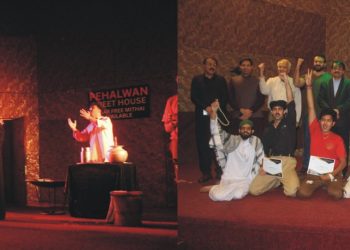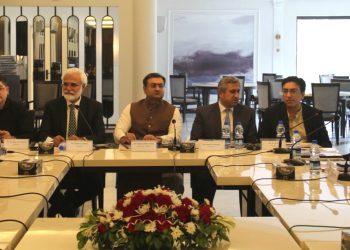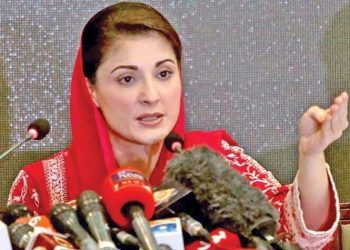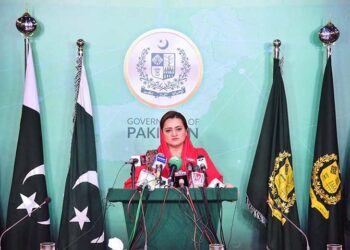By Naveed Siddiqui
ISLAMABAD: Pakistan’s Foreign Office Thursday addressed concerns over talks with the outlawed Tehreek-e-Taliban Pakistan (TTP) and emphasized that there is no intention to engage in dialogue with the group responsible for terror incidents. Foreign Office spokesperson Mumtaz Zahra Baloch reaffirmed Pakistan’s demand for the Afghan interim government to act against terrorist elements, including TTP leadership.
Regarding Jamiat Ulema-e-Islam-Fazl (JUI-F) chief Maulana Fazlur Rehman’s visit to Afghanistan, Baloch clarified that it was a private visit not sponsored by the government. She highlighted that public figures often receive briefings on Pakistan’s policies when visiting foreign countries. Baloch stated that Pakistan believes in engaging in dialogue, even with countries where differences exist.
The spokesperson expressed regret over India’s narrative ahead of the Lok Sabha elections, countering claims from former Indian diplomat Ajay Bisaria’s book regarding the Pulwama episode. Baloch emphasized Balakot as a military setback for India and criticized a perceived rise in a “fascist mindset.”
On the international front, Pakistan supported South Africa’s application at the International Court of Justice against Israeli atrocities in Gaza. Baloch condemned Israel’s actions as war crimes and crimes against humanity, reiterating Pakistan’s call for an immediate ceasefire and a just solution to the Palestinian question.
Addressing concerns about Pakistanis facing issues with work permits in the UAE, Baloch stated that visa decisions are sovereign choices. Pakistan remains engaged with Middle Eastern countries, including the UAE, to facilitate the travel and work permits of its citizens.
In summary, Pakistan maintains its firm stance against engaging with the TTP, clarifies Maulana Fazlur Rehman’s private visit to Afghanistan, counters Indian narratives on Pulwama, supports South Africa’s action against Israeli atrocities, and addresses concerns about Pakistanis in the UAE.

















